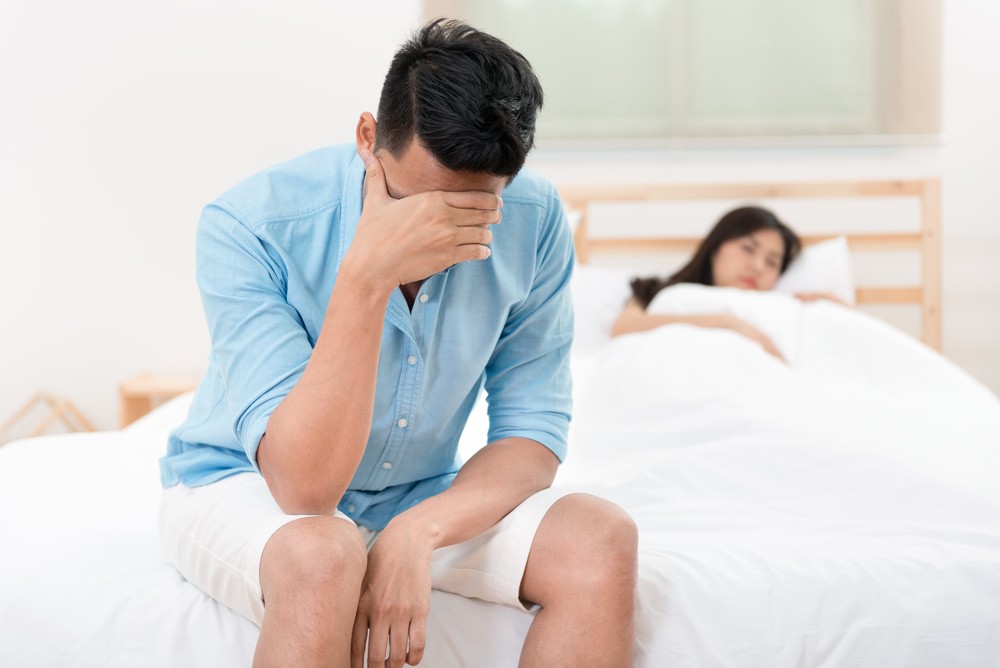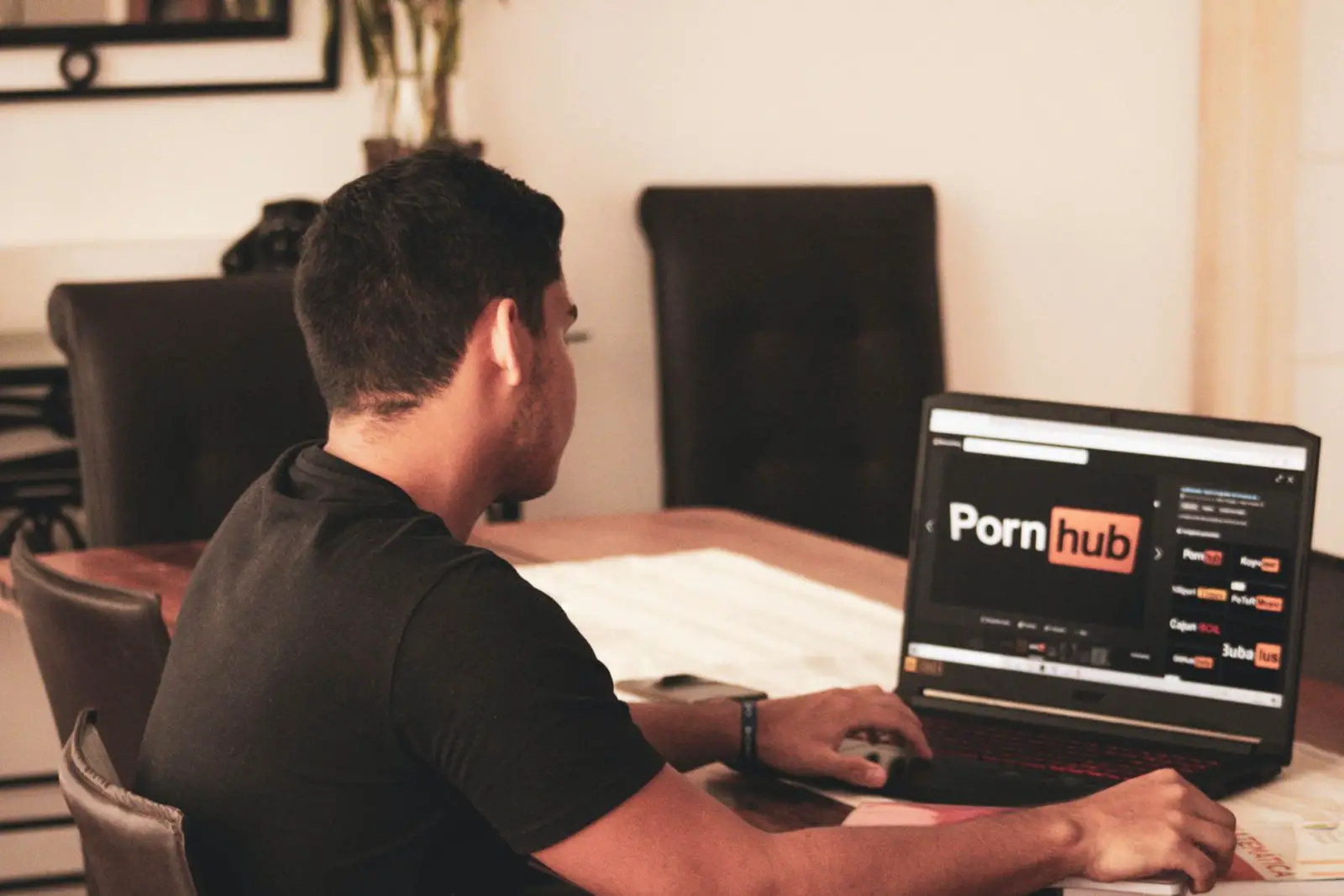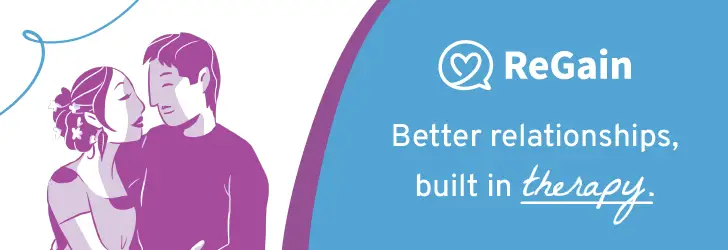As a BetterHelp affiliate, we receive compensation from BetterHelp if you purchase products or services through the links provided
Navigating the dating world can be challenging, and when your partner suffers from performance anxiety, it can add another layer of complexity to building a healthy relationship. Performance anxiety is a common issue that many people face, where they may feel anxious or nervous about their ability to perform well in various situations, including but not limited to intimate or sexual encounters. Understanding your partner’s struggles can help create a supportive environment, allowing both individuals to enjoy a satisfying and rewarding connection.
Supporting a partner with performance anxiety means being understanding, patient, and open to communication. By discussing the situation openly and honestly, you can work together to identify the root causes of the anxiety and explore potential solutions. Additionally, recognizing the physical and psychological aspects of performance anxiety can inform both partners on approaching difficult situations and foster an emotional connection that can help alleviate the pressure to perform.
Key Takeaways
- Understand the complexities of dating someone with performance anxiety and the importance of open communication.
- Recognize performance anxiety’s physical and psychological aspects to build a supportive environment.
- Explore various strategies and treatments for helping your partner cope with performance anxiety in a relationship.
 Understanding Performance Anxiety
Understanding Performance Anxiety
Performance anxiety is a common issue that affects many aspects of life, including dating and relationships. For those experiencing this type of anxiety, nervousness and fear can be overwhelming sensations that hinder their ability to perform and connect with their partner.
In a dating context, specifically with a guy who has performance anxiety, it is important to understand that this type of anxiety stems from the fear of being unable to meet expectations or disappointing their partner. These fears can manifest in various ways, such as difficulty maintaining an erection, premature ejaculation, or feeling inadequate during intimate moments.
Numerous factors can contribute to the development of performance anxiety. Some of the common causes include past traumatic experiences, societal expectations, and self-esteem issues. By recognizing and understanding these underlying factors, one can better empathize and support their partner as they work to overcome these challenges.
Effective communication is crucial in addressing performance anxiety. Discussing fears, expectations, and feelings with your partner can help establish a supportive and understanding environment. This, in turn, contributes to alleviating some of the stress and pressure that fuels the cycle of anxiety.
Several strategies and techniques can help a person break the cycle of performance anxiety. One approach is to focus on building self-confidence and self-esteem, as these aspects directly impact an individual’s ability to perform in various situations. Another valuable approach is to engage in mindfulness practices and relaxation techniques, which can help reduce anxiety, promote emotional regulation, and enhance overall well-being.
Lastly, professional help may be beneficial in addressing performance anxiety. A therapist or counselor can provide guidance and support in developing healthy coping mechanisms and targeting the root causes of anxiety. For further information on breaking the cycle of performance anxiety, you may want to read our article, How To Break The Cycle Of Performance Anxiety?
One can become a more empathetic and supportive partner by understanding the complexities of performance anxiety. This knowledge will ultimately foster a healthier and more satisfying relationship for both parties.

Recognizing Physical Symptoms
Performance anxiety can manifest in various physical symptoms affecting a man’s ability to maintain an erection or control ejaculation. Awareness of these signs can be crucial in understanding and addressing the issue in a supportive manner.
One of the most common physical symptoms of performance anxiety is erectile dysfunction. This occurs when a man has difficulty getting or maintaining an erection firm enough for sexual intercourse. A man may experience the inability to achieve an erection even when sexually aroused.
Another physical symptom that may arise from performance anxiety is premature ejaculation. It is characterized by them reaching orgasm and ejaculating with minimal stimulation or before they or their partner desire. In some instances, this may happen before penetration or shortly after, leading to dissatisfaction for both partners.
Alongside these two primary issues, other physical symptoms of performance anxiety may not directly involve erection or ejaculation. For example, it’s common for men with performance anxiety to experience rapid heartbeat, shortness of breath, shaky hands, and sweating during intimate moments.
In recognizing these physical symptoms, it is essential to remember not to overgeneralize or jump to conclusions. These symptoms may be due to other factors such as stress, exhaustion, or even an underlying medical condition. However, acknowledging these signs can serve as a starting point in providing understanding and support for a partner dealing with performance anxiety.

Psychological Aspects
Performance anxiety in a romantic relationship often stems from nervousness or concerns related to self-esteem. A man experiencing performance anxiety might feel unworthy of his partner or worry about his abilities in intimate situations. These emotions can feed a vicious cycle where anxiety leads to reduced confidence, worsening the anxiety disorder.
Communication is essential for understanding and overcoming these emotional hurdles. Encouraging open and honest discussions about feelings and concerns can help both partners work together to navigate the anxiety. Couples may also consider professional help to overcome the emotional impact of performance anxiety.
Building self-esteem can be another crucial aspect of addressing performance anxiety. Encourage your partner to focus on his strengths and positive qualities rather than dwelling on perceived shortcomings. Regularly expressing appreciation and admiration for each other can significantly boost confidence and strengthen emotional bonds.
It’s important to recognize the role of emotions in performance anxiety. Anxiety disorders are closely related to feelings of worthiness and self-esteem. Understanding and addressing these emotional aspects can be instrumental in breaking the cycle of anxiety and improving the overall well-being of both partners in the relationship.

The Role of Intimacy in Dating
Intimacy plays a significant role in dating, fostering a sense of emotional closeness and physical connection between partners. It often involves various forms of physical contact, including sexual activities. When dating a guy experiencing performance anxiety, being attentive to his needs and supportive during intimate moments is essential.
Sex is a crucial aspect of intimacy, providing emotional and physical pleasure for the involved parties. However, performance anxiety can disrupt the natural flow of sexual intercourse, posing challenges in delivering satisfying experiences for both partners. When dating someone with performance anxiety, communication becomes vital in understanding their feelings and needs.
Sexual performance is often linked to self-esteem, and failures during sexual encounters can lead to further anxiety. If you are dating a guy with such concerns, acknowledging the issue and being patient can help create a supportive environment where he feels safe to express his emotions openly. By empathizing with your partner and offering reassurance, you can help alleviate the pressures associated with performance anxiety.
Focusing on other aspects of intimacy besides sexual intercourse can be valuable in dating a guy with performance anxiety. Engaging in pleasurable activities, such as cuddling, touching, and kissing, can help strengthen the emotional connection and trust between partners. These acts of affection can, in turn, reduce anxiety and contribute to a more positive sexual experience.
Overall, dating a guy with performance anxiety requires an understanding and supportive approach in addressing the challenges that may arise in intimate situations. By emphasizing open communication, harnessing empathy, and focusing on all aspects of intimacy, you can create a loving and nurturing atmosphere for your relationship to grow.
Effective Communication Strategies
Establishing open and honest communication is crucial when dating a guy with performance anxiety. To support him through his struggles, apply these effective communication strategies:
- Active Listening: Give your full attention when your partner speaks. Avoid interrupting or judging him; offer encouraging nods and affirmations to show you understand his feelings.
- Empathy: Put yourself in his shoes and try to understand his emotions. This can help you connect deeper and make him feel validated.
- Building Trust: Create a safe space for both of you to converse openly and honestly. Be patient and trustworthy, sharing your vulnerabilities while respecting his.
- Managing Boundaries: Discuss and agree upon both of your limits and comfort levels in intimate situations. Establishing boundaries can help reduce stress and anxiety.
Remember that effective communication is key to any successful relationship, which entails active listening, empathy, trust, and managing boundaries. Using these strategies can help you strengthen your bond and support your partner dealing with performance anxiety.
 Seeking Professional Help
Seeking Professional Help
Performance anxiety can be a challenging issue for many men. When experiencing sexual dysfunction due to performance anxiety, it is crucial to consider seeking professional help. A therapist or counselor can provide valuable guidance and support in navigating this health issue.
One effective solution is enrolling in therapy sessions specifically designed for couples. In these sessions, both partners can openly communicate their thoughts, emotions, and experiences related to the issue. The therapist will assist in identifying underlying causes of performance anxiety and recommend practical solutions to help improve sexual functioning over time.
Through consistent communication and engagement in therapy, individuals can understand the root of their anxiety and develop healthier coping mechanisms. This can lead to a more satisfying and fulfilling intimate relationship for both partners.
If in-person counseling can’t fit into your budget or schedule, check out our ReGain US Review for information on finding reputable and accessible couples counseling services. Online counseling can be particularly helpful for those who may feel uncomfortable discussing such matters in person or cannot attend in-person sessions due to geographical limitations.
Ultimately, seeking professional help for performance anxiety is crucial in addressing and improving one’s sexual well-being. By actively participating in therapy sessions and implementing the suggestions of experienced professionals, individuals can overcome the challenges that performance anxiety presents and foster a more satisfying and healthy intimate life.
Healthy Lifestyle and Habits
When dating a guy with performance anxiety, encouraging a healthy lifestyle and habits can be beneficial in reducing anxiety levels. Exercise plays a crucial role in maintaining both physical and mental well-being. Regular physical activity, such as jogging, swimming, or practicing yoga, can help release endorphins, improve mood, and lessen anxiety.
Proper nutrition is equally important for a balanced state of mind. A diet rich in whole grains, fruits, vegetables, and lean proteins provides essential nutrients, vitamins, and minerals that support a healthy nervous system. Avoiding excessive processed foods, sugar, and caffeine intake can further reduce anxiety symptoms.
Medications can be both helpful and harmful when it comes to performance anxiety. Suppose your partner is on any prescribed medications. In that case, it is crucial to ensure they take them as directed and consult with their healthcare provider regarding any potential side effects or interactions. Avoiding self-medication without professional guidance is vital, as this may exacerbate the situation.
Smoking and excessive alcohol consumption adversely affect both physical and mental health. Encouraging your partner to quit smoking or reduce alcohol intake can significantly benefit their well-being and improve performance anxiety. Consider seeking professional assistance or joining support programs if needed.
Regular exercise, proper nutrition, responsible medication use, and avoiding harmful habits like smoking and excessive alcohol consumption can significantly reduce performance anxiety and promote a more fulfilling relationship.
 Addressing Porn and Media Influence
Addressing Porn and Media Influence
Porn and media can significantly impact people’s understanding and expectations of sex and relationships. For a guy with performance anxiety, this pressure can be exacerbated by unrealistic portrayals in adult films, movies, and advertisements focusing on body image.
One way to address this issue is by discussing how porn and media portrayals can distort reality and create false expectations. It’s important to remind your partner that these representations are inaccurate reflections of real-life interactions and that every couple’s sexual dynamic is unique. Encourage honest and open communication about their fears and insecurities, which can help build trust and intimacy.
For individuals dealing with porn-related fetishes or addiction, seeking professional help can be beneficial.
Also read:
How to Get Rid of a Fetish: A Guide for Mental Health offers insights on identifying triggers, coping strategies, and finding support. Working with a therapist or counselor specializing in sexual health can be essential in overcoming performance anxiety related to porn consumption. Porn Addiction Counseling: Effective Strategies for Recovery can provide further guidance on treatment options and recovery methods.
In addition to addressing porn and media consumption, fostering a healthy and realistic attitude toward body image is vital. Promote self-acceptance and resilience in the face of media messages that glamorize unrealistic standards. Sharing positive affirmations, engaging in activities that promote self-confidence, and shifting the focus away from physical appearance can support a more affirming approach to one’s body during intimate moments. Remember, addressing these issues is a continuous process, and maintaining open communication is vital for a successful and healthy relationship.
Exploring Treatment Options
When it comes to treating performance anxiety in men, several options are available. One of the primary considerations is whether the anxiety is rooted in psychological or physical factors. In many cases, combining treatments may be the most effective approach.
Guided imagery, a form of meditation or visualization, can be a helpful tool for those experiencing performance anxiety. This technique involves individuals visualizing themselves successfully engaging in sexual activities, thereby building confidence and reducing anxious thoughts. Many therapists offer guided imagery sessions for those looking to overcome performance anxiety.
Medications can also be prescribed to alleviate the physical symptoms of anxiety. These medications include selective serotonin reuptake inhibitors (SSRIs), benzodiazepines, and beta-blockers. Each medication aims to regulate specific aspects of the body’s stress response. SSRIs help to balance serotonin levels, reducing anxiety and improving mood; benzodiazepines work on the GABA neurotransmitter system to promote relaxation; beta-blockers reduce the effects of adrenaline, easing the physical symptoms of anxiety. It is essential to consult with a healthcare professional before starting any medication for performance anxiety.
In addition to guided imagery and medications, other treatment options may include:
- Counseling or therapy: A professional therapist can assist in uncovering the root causes of performance anxiety and help develop coping strategies.
- Relaxation techniques: Deep breathing exercises, progressive muscle relaxation, or mindfulness can help promote relaxation and reduce anxiety.
- Changing lifestyle habits: A healthy lifestyle can contribute to reduced anxiety. This includes regular exercise, proper sleep, and maintaining a balanced diet.
Both partners need to communicate openly and honestly during the treatment process. Encouragement and mutual support can significantly impact the success of any treatment plan.
Supporting Your Partner
When dating a guy with performance anxiety, providing support and understanding and exercising patience is essential. Performance anxiety can be a deeply ingrained, affecting intimacy, self-esteem, and overall well-being. It’s crucial to address this issue with sensitivity.
Being a supportive partner means listening carefully and showing empathy. Avoiding judgment or criticism is essential, as this may only exacerbate the problem. Maintain a comfortable atmosphere and encourage open communication about fears, desires, and experiences.
Patience is key when dealing with performance anxiety because progress might be slow. It is important not to rush your partner into overcoming this issue, as putting pressure on him may do more harm than good. Instead, let him know that you’re willing to work through the problem together and that you’re there for him every step of the way.
Understanding and learning more about performance anxiety can help support your partner better. Be aware of the possible causes, such as stress or negative self-image, and educate yourself on treatment options like therapy, relaxation techniques, or medications. Sharing this knowledge with your partner can also empower him to seek professional help.
Allow your partner to show vulnerability, which is essential to fostering trust and intimacy. Encourage him to express his feelings and emotions openly and be prepared to do the same. Create a safe space where both of you can be genuine and form a deep emotional connection that can positively influence your physical relationship.
You can help your partner overcome performance anxiety and nurture a loving, fulfilling relationship by being supportive, patient, understanding, and embracing vulnerability.
Frequently Asked Questions
Do men often experience performance anxiety?
Yes, men often experience performance anxiety. It is a common issue that can occur at any age and can be caused by various factors such as stress, societal expectations, or past negative experiences in bed.
What are common symptoms of performance anxiety in men?
Common symptoms of performance anxiety in men may include difficulty maintaining an erection, premature ejaculation, and a decreased interest in sex. Emotional symptoms such as irritability, inadequacy, and low self-esteem may also be present.
How to help a partner with performance anxiety?
If your partner is experiencing performance anxiety, it is essential to be supportive and understanding. Focus on open communication, create a positive and relaxed atmosphere, and reassure them that their anxiety is normal and manageable. Encourage them to seek professional help if needed.
Is it normal for men to be nervous in bed?
Yes, men are normally nervous in bed, particularly in new relationships or with new partners. This nervousness can sometimes result from performance anxiety, but it is common for both men and women to feel some level of nerves in intimate situations.
How does nervousness affect sexual performance?
Nervousness can affect sexual performance in several ways. It may lead to physical symptoms like difficulty maintaining an erection or premature ejaculation. Additionally, feelings of stress and anxiety may negatively impact a person’s sexual desire or pleasure during intimacy.
Can a strong connection help to overcome performance anxiety?
A strong emotional connection between partners can greatly help in overcoming performance anxiety. Trust, understanding, and open communication create an environment where individuals can feel relaxed and secure, reducing anxiety levels and allowing them to focus on enjoying the intimate moment.
- 3 Ways Wearing a Hat Can Help Lower Your Stress Levels - April 19, 2025
- Breaking the Silence: Why Men’s Mental Health Matters More Than Ever - April 15, 2025
- How to Transform a Home’s Patio Space into a Relaxing Space - March 23, 2025
This site contains affiliate links to products. We will receive a commission for purchases made through these links.


 Understanding Performance Anxiety
Understanding Performance Anxiety Seeking Professional Help
Seeking Professional Help
 Addressing Porn and Media Influence
Addressing Porn and Media Influence

